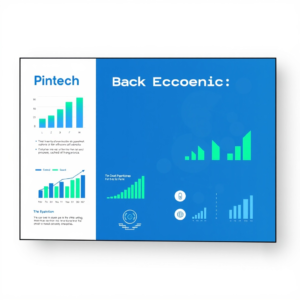Understanding the Landscape
As the FinTech landscape evolves, Series C funding rounds have emerged as pivotal moments for startups. At this stage, companies are not just seeking capital; they are positioning themselves for growth, scalability, and market leadership. However, the complexities of due diligence can be daunting. This process is not merely a box-ticking exercise; it’s a deep dive into a startup’s operational, financial, and strategic health that can ultimately determine the success or failure of the investment.
Investors need to be armed with a robust understanding of the sector, identifying key risks and opportunities. In this article, we will explore the essential components of due diligence in Series C FinTech rounds, offering insights that can empower both investors and startups alike.
Key Components of Due Diligence
When embarking on the due diligence journey, it’s crucial to know what to focus on. A successful due diligence process can significantly enhance investor confidence and lead to informed decision-making. Below are the key components that require thorough investigation:
- Financial Health: Analyzing financial statements, revenue streams, and cash flow projections is essential. Investors should assess whether the startup has a sustainable business model and a clear path to profitability.
- Market Position: Understanding the competitive landscape is vital. Investors should evaluate market share, customer acquisition strategies, and the startup’s unique value proposition.
- Technology and Innovation: In the FinTech sector, technology is often the backbone of success. Investors must scrutinize the startup’s technology stack, product development roadmap, and any intellectual property protections in place.
- Regulatory Compliance: Given the heavily regulated nature of FinTech, ensuring compliance with relevant laws and regulations is non-negotiable. A thorough review of licenses, regulatory filings, and risk management practices is crucial.
- Team Assessment: The capabilities and experience of the founding team can make or break a startup. Investors should delve into the team’s background, expertise, and their ability to execute the business plan.
The Due Diligence Checklist
Having a structured approach to due diligence can streamline the process and ensure no critical areas are overlooked. Below is a comprehensive checklist that serves as a roadmap for investors during the Series C due diligence phase:
- Financial Documents: Collect balance sheets, income statements, and cash flow statements for the past three years.
- Business Model Analysis: Evaluate the startup’s business model and unit economics.
- Market Research: Conduct competitive analysis and assess market trends impacting the startup.
- Technology Review: Perform a technical audit of the product and assess the development team’s capabilities.
- Regulatory Review: Verify compliance with applicable regulations and review any potential legal issues.
- Customer Feedback: Gather insights from existing customers to assess satisfaction and product-market fit.
- Team Interviews: Conduct interviews with key team members to gauge their vision and execution capabilities.
By following this checklist, investors can ensure a comprehensive evaluation, paving the way for a successful investment in the fast-paced FinTech ecosystem.



